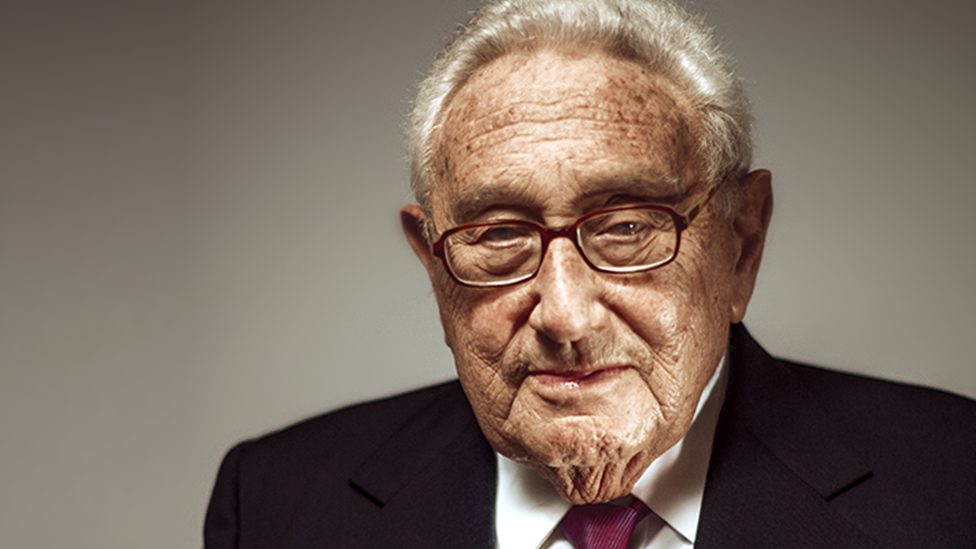
A Jewish refugee who fled Nazi Germany in the 1930s, Henry Kissinger rose to become one of the great American statesmen and policymakers of the 20th century. For a long period during the 1970s, he was the U.S. Secretary of State and National Security Adviser, using his formidable negotiating skills to advance the country's interest on the global scene. In 1973, Kissinger was offered the Nobel Peace Prize for his effort on the Paris Peace Accords that resulted in the withdrawal of U.S. forces from the Vietnam War. He is also credited with improving U.S. relations with its two primary Cold War enemies, China and the Soviet Union. After leaving government service, he founded Kissinger Associates, an international consulting firm he continues to helm as Chairman. Kissinger is also a notable academic and author of more than a dozen books on foreign policy, international affairs, and diplomatic history. Among the awards Kissinger has received have been a Bronze Star from the U.S. Army in 1945, the Presidential Medal of Freedom (the nation’s highest civilian award) in 1977, and the Medal of Liberty in 1986.
In addition, Kissinger has ties to Harvard University that go back more than 70 years. In 1947, after serving in WWII as a rifleman and intelligence officer, Kissinger enrolled at Harvard on the G.I. Bill. As an undergraduate, he lived in Adams House and studied under William Yandell Elliott, a Harvard historian who acted as political advisor to six U.S. Presidents. Kissinger's senior thesis was over 400 pages long and tackled a vast subject matter: the meaning of history. (It later became Harvard lore that his daunting manuscript was the origin of the current limit of 35,000 words in length.) In 1950, Kissinger received his bachelor's degree in political science, graduating summa cum laude and Phi Beta Kappa. Upon graduation, he decided to remain at Harvard to pursue a Master of Arts and PhD, which were completed in 1951 and 1954, respectively.
Kissinger began his service to his alma mater almost immediately by accepting an offer to stay at Harvard as a member of the faculty. From 1954 to 1969, he was a member of Harvard’s government department and the Center for International Affairs, earning tenure in 1959. He was also Director of the Harvard International Seminar from 1952 to 1969. Over the years, he has returned to campus for numerous class reunions and public events, including a 2012 visit during Harvard's 375th anniversary celebration. Titled “A Conversation with Henry Kissinger," Harvard President Drew Faust weighed in on Kissinger's significance to his alma mater. "A fellow student once called Henry Kissinger’s work here ‘a conversation with himself on some of humanity’s deepest questions,’” Faust told the crowd. “Harvard was fortunate to have been a formative part of that conversation, and we are very fortunate to continue that conversation today.”
